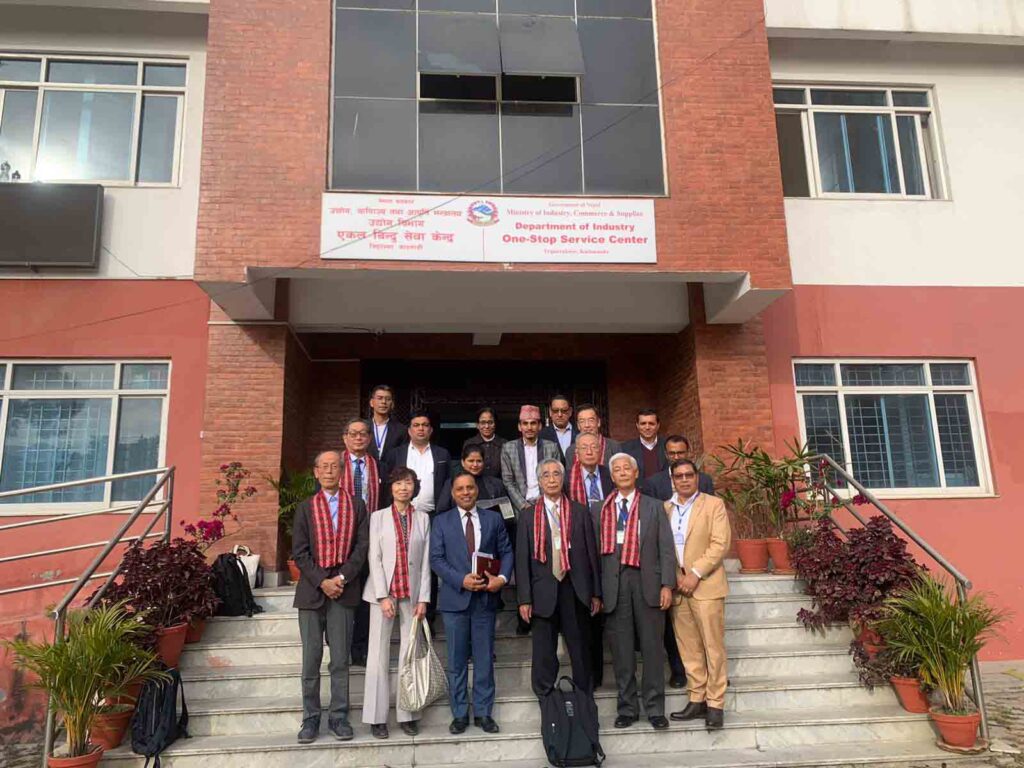The Department of Industry (DoI) in Nepal plays a pivotal role in the country’s industrial development. As an essential government body, it facilitates and regulates industrial activities, ensuring sustainable economic growth and fostering an environment conducive to business. This essay delves into the history of the Department of Industry, outlines its core functions, and highlights its significance in the broader context of Nepal’s economic development.
History of the Department of Industry
The history of the Department of Industry in Nepal dates back to the early efforts of the Nepalese government to modernize and industrialize the economy. Established in 1935, during the reign of King Tribhuvan, the department was initially focused on promoting small-scale industries to reduce dependence on imports and enhance local production capabilities. Over the decades, the DoI has undergone numerous transformations to adapt to the changing economic landscape, including policy reforms and structural adjustments.
In the 1990s, with the liberalization of the Nepalese economy, the Department of Industry expanded its mandate to attract foreign direct investment (FDI) and support large-scale industrial projects. This period marked a significant shift in the department’s approach, emphasizing the need for a more open and competitive industrial sector. Today, the DoI is a key player in implementing industrial policies, facilitating investment, and promoting sustainable industrial practices.
Main Functions of the Department of Industry
The Department of Industry performs a variety of critical functions aimed at fostering industrial growth and development. These functions can be categorized into several core areas:
1. Policy Formulation and Implementation:
– The DoI is responsible for formulating industrial policies that align with the national development goals. It ensures these policies are effectively implemented, creating a stable and predictable business environment.
2. Investment Promotion:
– One of the primary roles of the DoI is to attract both domestic and foreign investment. It provides information, incentives, and support services to potential investors, helping them navigate the regulatory landscape and set up operations in Nepal.
3. Industrial Registration and Licensing:
– The department manages the registration and licensing of industries, ensuring compliance with legal and regulatory requirements. This function is crucial for maintaining an organized and transparent industrial sector.
4. Regulation and Compliance:
– The DoI monitors industrial activities to ensure they adhere to national standards and regulations. This includes environmental compliance, labor laws, and safety standards, thereby promoting responsible and sustainable industrial practices.
5. Support and Facilitation:
– The department offers various support services to industries, including technical assistance, training programs, and infrastructure development. These services are designed to enhance productivity, innovation, and competitiveness in the industrial sector.
6. Data Collection and Research:
– The DoI conducts research and collects data on industrial activities to inform policy-making and strategic planning. This information is crucial for identifying trends, challenges, and opportunities within the industrial sector.
Significance of the Department of Industry
The Department of Industry plays a crucial role in Nepal’s economic development by creating a conducive environment for industrial growth. By attracting investment, both domestic and foreign, the DoI helps generate employment, boost exports, and drive technological advancements. Moreover, its emphasis on sustainable practices ensures that industrial growth does not come at the expense of environmental degradation.
The DoI’s efforts in policy formulation and implementation are vital for maintaining a competitive industrial sector. By continuously updating and refining industrial policies, the department ensures that Nepal remains an attractive destination for investors and entrepreneurs. This, in turn, contributes to the broader goals of economic diversification and resilience.
The Department of Industry in Nepal has a rich history and a multifaceted role in promoting industrial development. From policy formulation and investment promotion to regulation and support services, the DoI is central to driving sustainable economic growth in Nepal. As the country continues to modernize and integrate into the global economy, the Department of Industry’s role will remain pivotal in shaping a prosperous industrial landscape.



Pingback: Foreign Investment in Himalayan Country NEPAL - veshraj.com